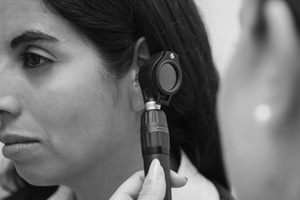View the complete list of conditions
What is a Deviated Septum?
A deviated septum is the wall that separates your two nasal passages and has a few different purposes. Primarily, it supports the nose and directs airflow into and out of the nose. Deviated septum symptoms are particularly noticeable when the cartilage (which is what the septum is made out of) isn't noticeably straight. It can bend as you grow older, in which case it's considered a normal part of growing up. It can also be deviated as a result of an injury, typically a broken nose. A little known fact is that few people actually have a perfectly straight septum.
There are a few different types of deviated septum surgery, which is used to straighten the septum: septoplasty, submucous resection of the septum, or septal reconstruction. A septoplasty is one of the most effective types of deviated septum surgery, as it can treat sinusitis, reduce snoring, and help with sleep apnea. It can also remove and treat nasal polyps. If you are recognizing the signs of a deviated septum and it is negatively impacting your life, consider making an appointment with a Midtown West septoplasty expert to figure out a treatment plan.
Treating a deviated septum
A deviated septum surgery is the most effective, though not the only, method of treatment. Decongestants, antihistamines, and nasal steroid sprays are all used to manage the symptoms of the tissues lining the nose. This tissue often contributes to the obstruction of the nasal passageways, which gets in the way of drainage. These methods of treating a deviated septum are only temporary, though, and aren't successful in the long-term. A specialist may recommend surgery.
Deviated septum surgery options will straighten and reposition the nasal septum to the center of the nose. Parts may be removed in order to achieve this goal, but a septoplasty surgeon will make sure it's done carefully and precisely. The surgery can cure deviated septum symptoms, which in turn can help with sleeping or breathing disorders.
Typically, a deviated septum surgery can be completed in about an hour and there is a bit of a recovery. Again, there are few complications associated with a typical procedure. Doctors often split the inside of the nose, though it's not outwardly visible. It helps keep the septum stabilized while it heals. Excessive bleeding and inflammation are not usually risks associated with the procedure either, though it does occur in some patients. A Midtown West septoplasty surgeon will monitor your recovery to make sure you aren't experiencing any serious complications.
Conditions
Ears
Nose
- Ballon Sinusplasty Surgery
- Concha
- Deviated Septum Relief In NYC
- Deviated Septums
- Fixing a Deviated Septum
- Identifying A Deviated Septum
- How Do I Know if My Nose is Broken?
- Nasal Polyps
- Nasal Polyp Surgery
- Nasal Septums
- NYC Nasal Polyp Reduction
- Septoplasty And Turbinate Surgery
- Treating a Deviated Septum
- Treating Nasal Polyps
- Turbinate Reduction
Throat
- Dysphagia
- Leukoplakia Treatments
- Reflux Laryngitis
- Swallowing Disorders
- Treating Anosmia
- Vocal Disorders
Allergies & Asthma
- Dealing With Allergic Rhinitis
- Managing Allergies and Asthma
- How to Allergy-Proof Your Home from Indoor Allergens
Sinus
- Chronic Sinusitis Treatment
- Endoscopic Sinus Surgeries
- Sinus Headache Cure
- Sinus Infection Treatment
- Sinusitis Surgery
- Treating Sinus Infections
Sleep & Snoring
- Diagnosing Sleep Disorders
- Having Trouble Sleeping
- Home Sleep Studies
- Pillar Implants
- Pillar Treatment for Snoring
- Sleep Apnea Conditions
- Sleep Apnea Specialists
- Sleepless in NYC
- Sleep Study Diagnosis
- Can Snoring Cause Health Issues?
- Treating Sleep Apnea
- Treating Snoring
- What is a CPAP Device?





